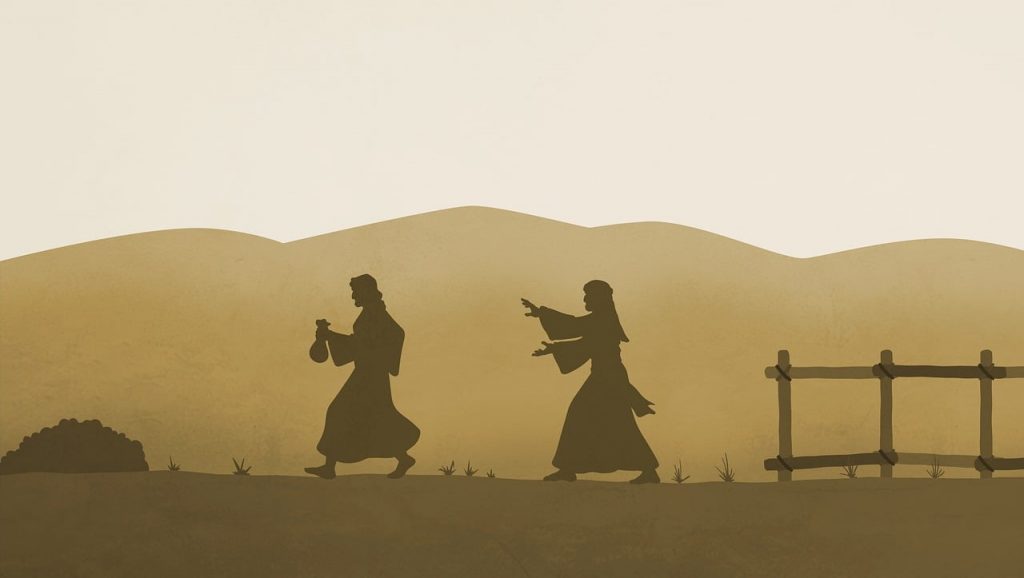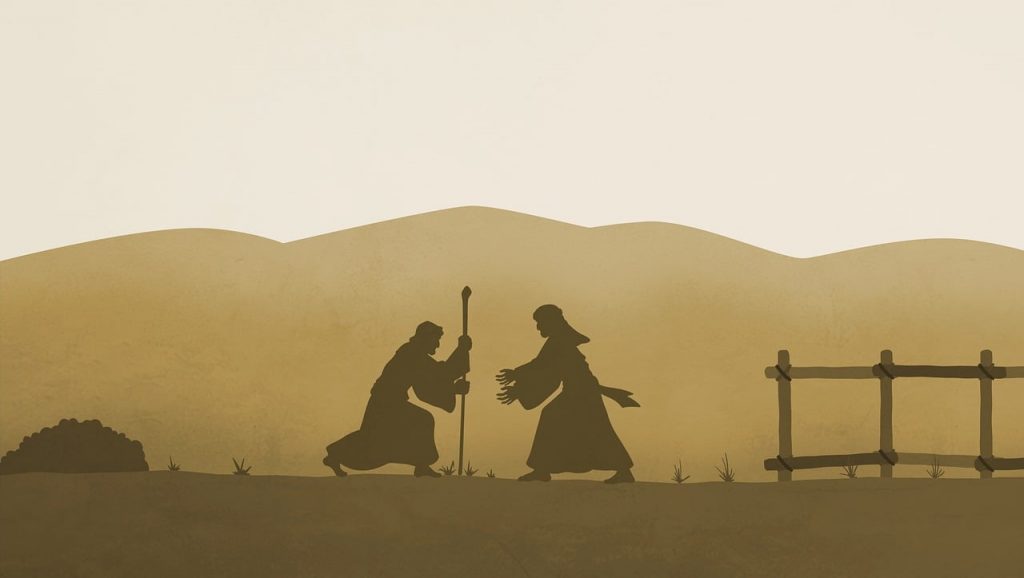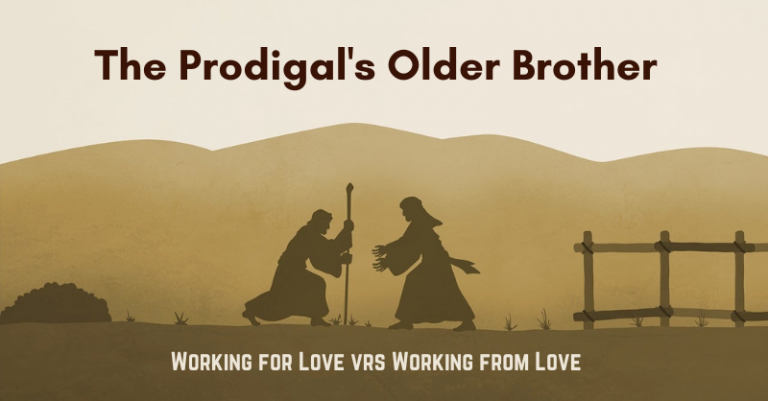The Prodigal Son and His Older Brother
The parable of the Prodigal Son in the gospel of Luke is one of Jesus’ most popular parables. You can find it in chapter 15 in the midst of several parables that Jesus used to teach those Pharisees and scribes a lesson. I have fond memories of watching the animated version of this story as a child, and I still remember the main theme song from the program, “Welcome Home.”
You likely know the story well, but essentially, a certain man had two sons. The youngest son couldn’t wait to get what was coming to him and somehow convinced his father to give him his inheritance early. Not too long after, the younger son left with all his money to go live his best life in a country far away. I’ve always pictured that he went to the big city. It was a typical country boy goes to live the high life in the big city type of scenario. He probably suffered from FOMO. Well, we know what happened. He spent all his money on what the bible calls riotous living. In today’s vernacular, we’d call it living that party life. His older brother eventually made it plain: his younger brother spent his father’s money on prostitutes, so it was no secret that the younger brother sank deep into sin.
Well, he spent and spent. Once the money ran out, the good times came to an end, and his belly went empty, he found a job working for a man who owned pigs. He must have been desperate because he had the worst job any Hebrew could have. He slopped the pigs. And he was so hungry that he would have willingly eaten after the pigs. Think about that for a moment. That would be a low point for anyone. But in the midst of the swine and squalor, the youngest son came to his right mind, and you hopefully know the rest of the story. He returned to his father, repentant and humble, and the father accepted him with open arms. And not only that, the father threw him a party…the good kind of party.
Meanwhile the older son, the prodigal’s older brother came in from a hard day’s work and heard music. He asked his father’s servant what was going on. The servant gave him the details, and the older brother was livid and refused to join the celebration in his father’s house. So the father came out to meet him. The older brother confronted his father, and his father laid out the facts in some of the beautifully quoted lines in scripture:
“ ‘It was right that we should make merry and be glad, for your brother was dead and is alive again, and was lost and is found.’ ” – Luke 15:32
We all hope that the older brother’s heart softened and that he came into the party, but the Master doesn’t say. I believe He was hoping the Pharisees and scribes would see themselves in the story and come to that conclusion.

Working for Love
I recently heard a sermon about this parable, and it really got me thinking. Usually, the prodigal gets the most attention, but my thoughts turned towards to the older son in the parable. I came to this conclusion:
There is a vast difference between working for love and working from love.
Think about the older brother.
All that his father had left was his. But yet he didn’t realize it. I believe the older son had a transactional relationship with his father and was disappointed when his father didn’t give him what he believed he deserved. In his mind, the work that he did and his loyalty should have earned him favor in his father’s eyes. But favor was already his, not because of what he did, but because of who he was in relation to his father.
He was his father’s son.
The older brother was working for reward. But he should have been working from the love he had for his father. He was in his father’s house, day in and day out, but he really didn’t know his father until he witnessed the overwhelming compassion and forgiveness that his father showed his younger brother.
Going Back to the Father
Now, the younger brother had certainly done enough to warrant derision, even death in that culture. But the extreme fall the younger son took brought him to a place of both brokenness and sobriety. In the midst of famine and desperation, he realized his true state and humbly returned to his father, not to reclaim his sonship, but to serve.
I’m sure he expected to return to the look of disappointment on his father’s face. He made an absolute mess of everything his father had given him. But instead, he was met with the paradoxical love and forgiveness of his father. The father greeted him, not as a servant, but as a son. The father saw his younger son, not as an irredeemable failure, but as the apple of his eye returning to the place where he always belonged. He saw his son, not for what he done, but for who he was in relation to him.

How Could This Be?
This is the perspective that confounded the older brother. How could his father accept his younger brother after all he had done? After all, the older brother had done nothing but good, hard, faithful work day after day, and yet in his mind, the father did not give him what his good work should have afforded him. The older brother failed to understand that relationship, not works, was the driver of his father’s favor. Had he simply asked, the older brother would have received anything he desired from his father. The father knew how to give good gifts to his children.
But the older brother didn’t ask because he didn’t feel like he needed to. From his perspective, his efforts should have been so evident to the father that the father should’ve recognized them and volunteered the good things based on his merit. Didn’t the father realized the older son was the “good” son, especially in comparison to his younger son’s behavior? But the older brother had not because he asked not. And he asked not because asking would have meant accepting a gift, not reaping his just due. And so he worked day after day, not realizing that his status as a favored son was not based on his efforts in the field, but by his birth.
The Real Inheritance
God gives everyone the opportunity to be his children. He offers a birth, a new birth. A realization of our sinful state and a desire to repent are the prerequisites to receive this new spiritual birth. And even those are gifts. When we know who we were, who we are, and to whom we belong, we can begin to comprehend the great compassion of the God we serve. Our service will be based on the love of the Father. And our response to our brothers and sisters in the faith will be based on a familiar compassion, familiar because it’s the same compassion and love we know we need every day and are grateful to have received. But if we never grasp the real equation: Work from love, not for work love, we’ll never have the correct picture of ourselves, our brothers and sisters, or the Father we claim to serve. We’ll never know Him, and He’ll never know us, despite the good works we believe we’ve done in His field. We’ll find out too late that we were never really home.
Thankfully, the same compassion the father showed his youngest son is the same love and compassion available to the older son. The older son needed only to recognize his state, repent from his works driven existence, and receive his father’s gift. Then he could have joined his little brother’s celebration, which would have become his celebration too. In experiencing the great love of His father, he would have never served another day in that old attitude of working for his favor. He would be able to show his own children the compassion he witnessed and received from his father. He would know who he was and who his father really was.
This was the message Jesus was sharing to the Jews who ridiculed with for showing compassion to the sinners and tax collectors. He hoped they would see themselves in this story, recognize who He was, and repent so that they could truly know the God the claimed to serve. We don’t know if the older brother ended up joining the party. Jesus left that part of the story open ended because ultimately the ending was up the scribes and Pharisees he was speaking to. Their response would determine the story’s end.
In His great compassion, the Rabbi of Rabbis offers the same teaching moment to all the older brothers in the pews, all those who serve as if their works earn their position in the house. This is a dead end.
We must work from love, not for it. Only then can we extend the same grace to others who we may be tempted to think don’t deserve it. None of us deserve anything but death. We deserve to eat with the pigs. But the gift of God is eternal life through Jesus Christ our Lord. May we be humble enough to know we need the gift and ask for it. Then we will receive the inheritance prepared for us and join the ultimate celebration.
Recommended Resources:
